- You are here:
- Home »
- Food Substitutes
- » Best Substitutes For Cumin
Best Substitutes For Cumin

Cumin is a versatile spice widely used in various cuisines, known for its warm and earthy flavor. However, there may be times when you find yourself in a pinch without cumin in your pantry. Whether you ran out of it or simply don’t like its taste, having suitable substitutes for cumin can come in handy.
In this article, we will explore the best substitutes for cumin that can provide a similar flavor profile to enhance your dishes. We will also discuss the different types of substitutes available, how to choose the right one for your recipe, and provide some delicious recipes that you can try with these substitutes.
Key Takeaways
- Cumin is a popular spice known for its warm and earthy flavor.
- Substitutes for cumin can come in handy when you run out of it or dislike its taste.
- The best substitutes for cumin include coriander, chili powder, caraway seeds, fennel seeds, and garam masala.
- Choose the right substitute based on the flavor profile you desire for your dish.
- Use substitutes in moderation and adjust the quantity according to taste preferences.
Why You Need A Substitute For Cumin
There can be several reasons why you might need a substitute for cumin. One common reason is running out of cumin while cooking a recipe that calls for it. Another reason could be that you simply don’t enjoy the taste of cumin and prefer an alternative flavor profile in your dishes. Additionally, some people may have allergies or sensitivities to cumin and need to find suitable replacements.
Having a substitute for cumin allows you to continue cooking without compromising flavor. It adds a similar depth and aroma to your dishes, ensuring that you achieve a well-balanced and flavorful outcome.
Types Of Substitutes For Cumin
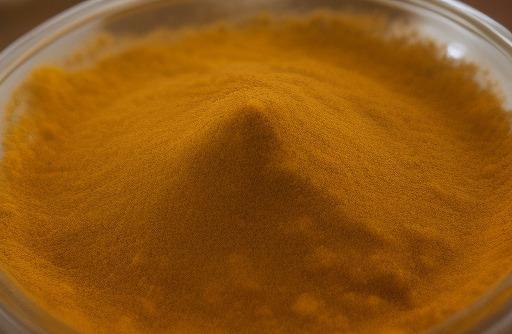
When it comes to substituting cumin, there are a few different options to consider. The choice of substitute depends on the flavor profile you want to achieve and the ingredients you have on hand. Here are some common types of substitutes for cumin:
- Spice Substitutes: These substitutes include spices that have a similar flavor profile to cumin. They can be used as a 1:1 replacement in recipes.
- Seed Substitutes: These substitutes consist of seeds that have a comparable taste to cumin. They can be ground into a powder or toasted to release their flavors.
- Blends or Mixes: These substitutes are pre-made spice blends or mixes that contain a combination of different spices, including cumin. They provide a ready-made alternative to cumin in recipes.
Now, let’s dive into the best substitutes for cumin and explore their flavors, uses, and tips for incorporating them into your cooking.
Best Substitutes For Cumin
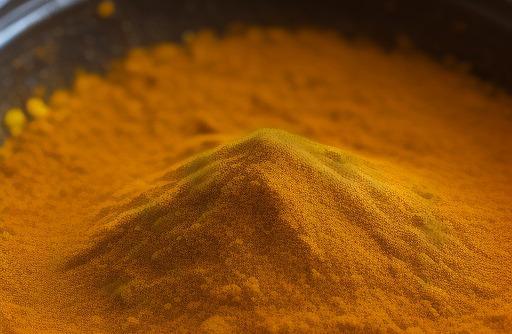
- Coriander: Coriander is an excellent substitute for cumin as it comes from the same plant family. It has a slightly milder and sweeter flavor compared to cumin but still provides a warm and citrusy taste. Ground coriander can be used as a 1:1 replacement for cumin in most recipes. It is commonly found in Indian, Middle Eastern, and Mexican cuisines.
- Chili Powder: Chili powder is another suitable substitute for cumin, especially if you enjoy a bit of heat in your dishes. It is made from ground chili peppers and other spices. While it doesn’t have the exact smoky flavor of cumin, it adds a spicy and smoky kick to your recipes. Use chili powder in moderation as it can be hotter than cumin. Start with a smaller quantity and adjust according to your taste preferences.
- Caraway Seeds: Caraway seeds are often used as a substitute for cumin in European and Scandinavian cuisines. They have a similar earthy and warm flavor with a hint of anise-like sweetness. Toasting the caraway seeds before use intensifies their flavor. You can use caraway seeds as a 1:1 replacement for cumin or grind them into a powder. They work well in savory dishes, bread, and even pickles.
- Fennel Seeds: Fennel seeds have a similar aroma and taste to cumin, with a slight hint of sweetness and licorice-like flavor. They can be swapped for cumin in a 1:1 ratio to add depth to your dishes. Fennel seeds are commonly used in Italian and Mediterranean cuisines, especially in dishes like sausage, pasta sauces, or roasted vegetables.
- Garam Masala: Garam masala is a popular spice blend used in Indian cuisine. It typically includes cumin, coriander, cardamom, cloves, cinnamon, and black pepper, among other spices. If you have garam masala on hand, it can serve as an excellent substitute for cumin as it contains cumin in its blend. Use it as a 1:1 replacement or adjust the quantity according to your taste preferences.
Choosing The Right Substitute For Cumin
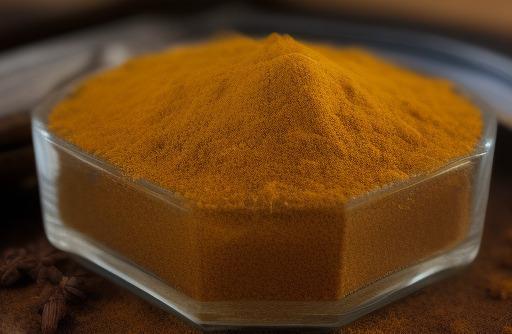
Choosing the right substitute for cumin depends on the flavor profile you want to achieve in your dish. Here are a few factors to consider when selecting a substitute:
- Intensity of Flavor: Cumin has a distinct and robust flavor. If you want to replicate the same intensity, opt for spices like coriander or chili powder. However, if you prefer a milder taste, fennel seeds or caraway seeds can be a good choice.
- Heat Level: Cumin has a subtle heat to it. If you enjoy spicy food, chili powder can be a suitable substitute as it adds heat along with flavor. On the other hand, if you prefer a milder option, coriander or garam masala can work well.
- Cuisine: Consider the cuisine you are cooking. For example, coriander is commonly used in Mexican and Indian recipes, while caraway seeds are more prevalent in European dishes. Choosing a substitute that aligns with the cuisine will enhance the overall flavor profile of your dish.
- Personal Preference: Ultimately, your personal preference plays a significant role in choosing the right substitute for cumin. Experiment with different substitutes and adjust the quantities to match your taste preferences.
Pro Tip: When substituting cumin with another spice, start with a smaller quantity and taste as you go. This will allow you to adjust the flavors and avoid overpowering the dish.
Cooking With Substitutes For Cumin
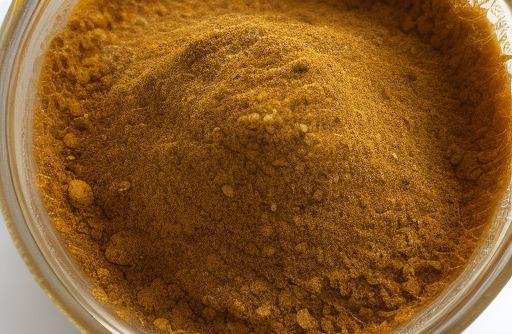
Cooking with substitutes for cumin is quite straightforward. Since most of these substitutes have a flavor profile similar to cumin, they can be used in the same way as cumin in recipes.
Here are some tips for cooking with substitutes for cumin:
- Use in the early stages of cooking: Add the substitute spice or seed along with other aromatics like garlic and onions at the beginning of the cooking process. This allows the flavors to infuse into the dish.
- Experiment with quantities: Start by using a small amount of the substitute spice or seed and increase the quantity gradually if needed. This will help you control the intensity and flavor of the dish.
- Toast whole seeds: If using seed substitutes like caraway or fennel seeds, consider toasting them in a dry pan before grinding or adding them to the recipe. Toasting enhances their flavor and aroma.
- Balance the flavors: If you’re using a substitute that lacks the smokiness of cumin, such as coriander, consider adding a tiny pinch of smoked paprika or smoked salt to replicate the smoky flavor.
- Pair with complementary spices: Depending on the dish you’re preparing, you can enhance the flavors of the substitute by pairing it with other complementary spices. For example, if using chili powder as a substitute, adding a pinch of garlic powder and oregano can enhance the overall taste.
Remember that the goal is to achieve a similar flavor profile to cumin, so don’t be afraid to get creative and adjust the spices to suit your preferences and the dish you’re preparing.
Recipes Using Substitutes For Cumin
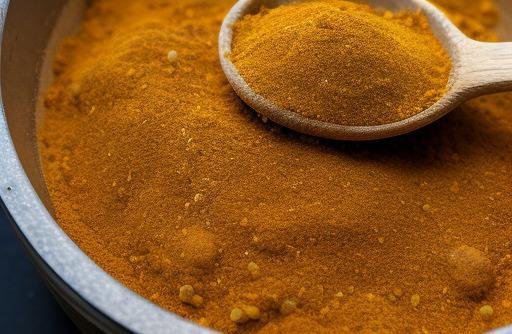
Here are a few delicious recipes where you can substitute cumin with the alternatives mentioned earlier:
1. Coriander-Spiced Roasted Vegetables
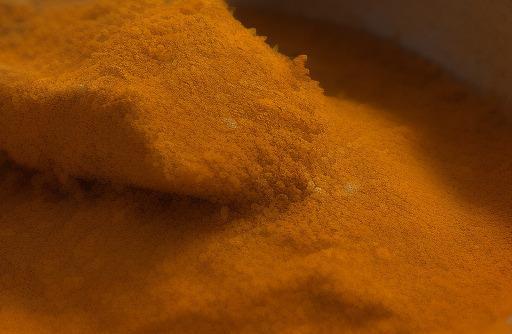
- Preheat your oven to 400°F (200°C).
- In a bowl, mix your choice of vegetables such as carrots, potatoes, bell peppers, and zucchini, with olive oil, salt, and pepper.
- Sprinkle ground coriander over the vegetables and toss to coat.
- Spread the vegetables on a baking sheet and roast in the preheated oven for about 25-30 minutes or until they are tender and golden brown.
- Serve as a side dish or as a filling for wraps or sandwiches.
2. Chili Lime Shrimp
- In a bowl, combine shrimp, olive oil, lime juice, garlic, and a pinch of chili powder.
- Let the shrimp marinate for about 15 minutes.
- Heat a skillet over medium heat and cook the shrimp for 2-3 minutes on each side or until they turn pink and opaque.
- Sprinkle some extra chili powder over the cooked shrimp for an extra kick of heat.
- Serve the shrimp over rice or with a side of vegetables for a flavorful and spicy meal.
3. Caraway Seed Bread
- In a large mixing bowl, combine flour, yeast, sugar, salt, and ground caraway seeds.
- Gradually add warm water and knead the dough until smooth and elastic.
- Shape the dough into a loaf and place it in a greased loaf pan.
- Cover the pan with a clean kitchen towel and let the dough rise for about an hour or until it doubles in size.
- Preheat your oven to 375°F (190°C) and bake the bread for 25-30 minutes or until it is golden brown and sounds hollow when tapped.
- Let the bread cool before slicing and enjoying.
Feel free to adjust the recipes and spice quantities based on your taste preferences and the specific substitute you’re using. These recipes will give you a good starting point to explore the flavors of different substitutes for cumin.
Storage And Shelf Life Of Substitutes
To ensure that your spice substitutes stay fresh and flavorful, proper storage is essential. Here are some tips for storing the substitutes mentioned:
- Ground Spices: Store ground coriander, chili powder, and garam masala in airtight containers away from moisture, heat, and light. They can last for up to 1-3 years if stored properly.
- Whole Seeds: Caraway seeds and fennel seeds should be stored in airtight containers in a cool, dark place. Whole seeds can last for up to 3-4 years if stored properly. Toasted whole seeds can also be stored in the refrigerator or freezer to maintain their freshness.
Remember to check the expiration dates on the spice containers and discard them if they have passed their prime. The aromas and flavors of spices tend to degrade over time, so fresh substitutes will ensure the best results in your cooking.
Conclusion
While cumin is a popular and versatile spice, having suitable substitutes for cumin is essential for various reasons. Whether you ran out of cumin or prefer a different flavor profile, substitutes like coriander, chili powder, caraway seeds, fennel seeds, and garam masala can add a similar depth and aroma to your dishes.
When choosing a substitute, consider the intensity of flavor, cuisine, personal preference, and adjust quantities accordingly. Use substitutes in moderation and taste as you go to achieve the desired flavor profile. Experiment with different spices and seeds to explore new tastes and enhance your culinary creations.
Remember, cooking is all about experimenting and finding what works best for you. So, don’t hesitate to get creative and let your taste buds guide you. Happy cooking!
FAQS
What Are Some Good Alternatives To Cumin?
Some great substitutes for cumin include coriander, caraway seeds, anise seeds, fennel seeds, and garam masala spice blend.
How Can I Use Coriander As A Replacement For Cumin?
Coriander is an excellent substitute for cumin, as it has a similar earthy flavor profile. Use 1 teaspoon of ground coriander to replace 1 teaspoon of cumin in your recipes.
Can I Use Caraway Seeds Instead Of Cumin In Recipes?
Yes, caraway seeds can be used in place of cumin, especially in dishes that require a nuttier flavor. For best results, use half the amount of caraway seeds as cumin in your recipe.
What Are Anise Seeds And How Can I Use Them As A Cumin Alternative?
Anise seeds are a sweet and aromatic spice that can be used as a substitute for cumin in certain recipes. Use 1 teaspoon of ground anise seeds to replace 1 teaspoon of cumin powder in your cooking.
How Can I Use Garam Masala As A Cumin Replacement?
Garam masala is a spice blend commonly used in Indian cooking, and can be used as a cumin substitute in many dishes. Use 1 tablespoon of garam masala for every teaspoon of cumin in your recipe, adjusting to taste as needed.
Sources
About the Author Jenny
I'm Jenny, a housewife with an unwavering passion for food. My culinary journey began with my grandmother's kitchen, and it's now a full-fledged food blog. I've turned my love for cooking into a creative outlet, sharing recipes and stories with a global community of fellow food enthusiasts. It's proof that being a housewife can also mean pursuing your passions and savoring life's delectable moments.
